Welcome to my blog!
Every morning, I begin with a cup of coffee and 15 minutes of free thinking. I write down everything that comes to mind, from new ideas to thoughts that emerged overnight. This is where I develop and refine my new research. You'll find some repetition and ideas still in progress. Some might seem unusual or unclear at first, but that's part of the journey! I'm excited to share how my ideas form and evolve.
Material vs. Conceptual Coherence
Exploring the distinct roles of logic and mathematics in understanding material and conceptual coherence, and how each contributes to different domains of reasoning.
When it comes to matters of fact, logical interactions become very simple, indeed because logic doesn’t organize facts. Still, there’s a way things are, ways things could have been, and ways things couldn’t have been. Einstein told us that information cannot travel faster than the speed of light, and we learned from his theories that gravity curves space-time and changes the trajectory of light. There’s a coherence to Einstein’s theory, but the coherence is purely material; it’s about the world of things. Understanding the material world in a scientific way means being able to account for the organization of things and make predictions about the future organization of things.
For this type of reasoning, logic really isn’t all that useful, other than guarding coherence in simple chains of logical reasoning, just as it does with daily reasoning. It’s really the power of mathematics that is effective for material predictions, because mathematics can make precise and measurable predictions—predictions that can be tested in the world. Logic, on the other hand, becomes much more influential in conceptual endeavors. Theories like moral or ethical theories, theories about the existence or non-existence of God, or theories about pure concepts such as the concept of truth, won’t be settled by material things.
Those who have theorized about the concept of truth have tried to identify first principles of truth, for instance, that a statement about the world is true if the world is according to the statement. The truth is about what we say, not about how things are. And those who have tried to find first principles have quickly figured out, with the help of logic, that things get weird in conceptual spaces. At the risk of creating a false dilemma, then, logic is about conceptual coherence, and mathematics about material “coherence.”
Logic and Harmony
Exploring how Ancient Greek notions of harmony reveal the essence of logical thinking as a pursuit of coherence, connecting music, mathematics, and the cosmos.
Yesterday, I wrote about the logic of things, partly because people sometimes use logic in that way, and also because I’m sometimes tempted to think that way but resist due to my training. In "Logic in the Wild," I discuss logic as the guardian of coherence, but I leave the definition of coherence open. This is intentional. If readers learn to engage with coherence rather than content, I’ll be proud of them, regardless of their interpretation of coherence.
One thing I’ve learnt while writing the book is that logic is much more than the symbolic game I played for twenty years. Once you start thinking about coherence instead of obsessing over consistency, you can shed new light on old, difficult questions or those dismissed by symbol manipulators. The case I want to present this morning is the way Ancient Greeks talked about harmony. Harmony, for them, was much more than pleasing sound ratios; it was a way of being, for the soul to be balanced, and for the universe to be organised. Literally, there were theories about the harmony of the soul and the harmony of the spheres. Music was just the introduction, exciting a person by making them feel harmony. As with other bodily pleasures, hearing harmonious sounds would inspire the youth to seek harmony within themselves and direct their attention to the universe, the movement of planets, and marvel at the universal harmony. Mathematics developed to treat music was thus constructed alongside mathematics for the motion of planets.
What does this have to do with logic? I realised that harmony for the Greeks is one way of seeking coherence. To find proportions of sounds that are pleasing and correlate them with the proportions of positions and movements of planets in the sky, and to understand this as the same kind of patterns that regulate the soul, is to seek coherence in the universe. It’s not about finding content or truth in things but seeking a coherent whole that makes sense of it all. And that, I submit, is essentially logical thinking. Furthermore, it is logical thinking directed at things, allowing us to talk about the logic of things.
The logic of things
This post explores how the term ‘logic’ is used in various contexts, from political ideologies to natural processes, and questions whether it genuinely reflects logical reasoning in the scenarios it describes.
People often talk about the 'logic' of various ideologies or scenarios, such as the "logic of the right," or the "logic of the left," and even extend this to "war logic" or the "logic of natural selection." I find myself resistant to these phrases, mostly because their meanings are not always clear.
Contrast "the logic of the left" and "war logic" with "the logic of natural selection." The first two concern our thoughts about societal and conflict-related issues. "The logic of the left" typically involves a political inclination towards fair redistribution and social justice. It reflects how we think about society, our beliefs about what is just, and our opinions on necessary actions. "War logic" might refer to the rationale we accept in wartime contexts. For example, arguing that we should use atomic bombs on Japanese civilians to prevent the death of American (and Japanese) soldiers would be part of “war logic.” There are specific variables, such as being on one side of the conflict and valuing the lives of your soldiers higher than the lives of the others’ civilians, which isn’t morally commendable, but something we might accept under the umbrella of the "logic of war".
On the other hand, "the logic of natural selection" refers to the processes that guide biological evolution, like the survival of the fittest—a principle explaining why certain traits prevail in species due to the survival advantages they conferred in previous generations. Is this about how we conceptualize evolution, or about how evolution actually unfolds? If it's the former, then logic is applicable as a framework for understanding. If it's the latter, it isn't really about "logic" at all but about biological processes. Asserting that certain traits dominate due to "logic" is misleading—it's not logical, it's biological. Logic, in its true sense, does not govern natural selection any more than it governs gravity or quantum mechanics.
Defining the Self: A Logical Exploration
This post delves into the complex task of defining the self, examining the role of logic in providing coherence to our understanding of identity and presence in the world.
Can you define yourself? Can you define your life? Can the answer be literal? What does logic have to do with any of that? As I discuss in Logic in the Wild, definitions serve as first principles of reasoning, alongside assumptions and axioms. Definitions are sometimes instrumental, for instance, in geometry, where there are no observable starting points. Instead, one typically defines what points, lines, and angles are, and then applies logic to unpack results in the form of theorems.
In science, there’s a clash between how the concept of mass is defined in Newtonian and relativistic physics—a clash that can be accommodated but that, without some coherence treatment, could lead to bad results. There are parts of science, however, where definitions matter little and can become a red herring for public debate, as when the definition of a planet was changed by a vote at a convention to demote Pluto from the status of a planet. While I don’t believe the new definition of a planet is justified or appropriate, it doesn’t matter whether we call Pluto a planet or not. It won’t affect our interest in studying it, the pictures we’ll take of it with the probes we send out, or anything besides what kids get to memorise in school and what models of the solar system look like at science fairs.
Now, where would a definition of the self belong on that spectrum? I don’t see how we could define a “self” as a first principle of reasoning like geometers define points or lines. Nor is it as insignificant as whether to call Pluto a planet or not. Is it, then, more like how mass is defined and treated in different scientific theories? Not really. For one, I wouldn’t claim that science has much to say in how we understand identity, the self, and presence in the world. It’s just not what it’s good at. But perhaps there’s something analogous that can help, namely that a definition is sometimes a way to categorise and articulate an important component. In science, a component of a theory, but in human existence, what life is and means for the you.
So, a definition is not there to bring you into existence but to help you articulate how you understand who you are and your presence in the world. And logic kicks in by guiding you in finding coherence in the way you articulate your life, perhaps in the narrative you give to understand your world, perhaps in a more direct way in identifying what makes you who you are. But of course, defining yourself or your life is more a metaphorical statement, something about establishing your presence in the world by owning your actions and your identity. Definition is then a much thicker concept that encapsulates a complex and rich understanding of who you are and your presence in the world. Even there, though, logic can still be there to guard coherence in the expression of your self.
Logic, the True Self, and Authenticity
This post explores the intriguing connection between logical thinking and authenticity, suggesting that coherence rather than truth might be the key to understanding our true selves.
Can logic help you be more authentic? That one might sound a bit weird, but I think there’s an intriguing thought to explore. Authenticity is a complex concept with multiple interpretations. While logic might help in figuring out the coherence of concepts or definitions of authenticity, as it often does, this is not what I want to think about this morning. I’m curious to ask whether logic, or logical thinking, can inspire a novel way of thinking about authenticity.
To contrast with a common notion of authenticity will help situate what I mean. You might have heard people claiming the empowerment of “being your true self,” which I take to mean liberating your core identity instead of repressing, suppressing, or hiding it. But truth is very demanding. I don’t really know what my “true self” is, and having strong philosophical inclinations towards the expression of such slogans, I find myself wondering what a self is and what it means for it to be true. Is there something essential about me that makes me who I am and that I have to respect and honour? What does it mean to be a “true” self, as opposed to what? A false self? A fake self? A constructed self?
Instead, here’s my thought with using logic. Logic and truth are two different and independent things. In Logic in the Wild, I advocate for logical thinking to liberate communication and interaction in society from being clashes of opinions and disagreements of beliefs. Instead, logic provides a “neutral space of dialectical enquiry,” where neutrality means a suspension of belief, a retraction of strong opinions, for the dialectical pursuit of shared agreement and coherence. Coherence is the key word here, and this is what logic offers to the enquiring mind: to seek and settle for coherence when truth is out of reach.
Why not adopt the same approach towards how we are in the world? Instead of thinking of authenticity as the expression of a “true self,” could we think of it as the coherent experience of our being? We change all the time, we adopt different roles in society, at work, with friends, or with family. We learn new things, we forget old ones. We are in constant flux. Finding a stable “true identity” in that constant flux can be a Sisyphean task, one that starts all over again as soon as we think we’ve got it. But coherence doesn’t require fixity. Coherence is what helps us sustain change, to respond in patterns we expect and understand, to act in ways we control, to own ourselves.
Instead of seeking to be your “true self,” then, here’s the exercise I propose towards authenticity: seek to be a “coherent self.”
Logic in Everyday Life: Beyond Spock's Sacrifice
Exploring a concrete example of logic in everyday life, this post challenges the perception of logic as an emotionless, external tool. It highlights how logic protects us by guarding coherence in reasoning, rather than dictating surprising, non-human decisions.
What is a concrete example of logic in everyday life? This is not an easy question to answer, depending on the expectation of the response. If you want a concrete case in which you have to make a decision and expect logic to give you a clear, perhaps unexpected answer, I’m afraid you’ll be disappointed. Unfortunately, people often think of logic as a tool that is external, devoid of emotion, non-human. A tool that makes rational decisions, decisions that go against the emotional flow, against human nature.
When Spock decides to sacrifice himself to save the rest of the crew (and the universe?), he tells his captain: “Logic clearly dictates that the needs of the many outweigh the needs of the few.” This justification goes against the love and friendship his captain and friend feel for him, prompting his sacrifice. Once you read Logic in the Wild, I hope you’ll see that logic is not a discipline that dictates truths. Logic doesn’t adjudicate content; it guards coherence. It might be that Spock’s reason for his sacrifice is coherent with the rest of his beliefs, but that doesn’t mean logic prevents alternative choices.
If you expect a concrete example like Spock’s sacrifice to illustrate how logic becomes a guiding light when human emotion fails, but also an example more relatable than sacrificing yourself for the greater good, I’m afraid I’ll disappoint you. However, I can provide an example that isn’t so much guiding as it is protective. Logic is good at helping you slow down your thinking, to think it through. Humans have psychological biases that help us make quick decisions, which is indeed helpful in many situations, but in a complex society, it can be exploited.
Suppose I tell you that I’ll buy you a diamond ring if I love you, and I come back the following day with a diamond ring, will you think this confirms my love for you. Why? There are many other reasons I could buy you a diamond ring, such as tricking you into feeling secure in my love. I didn’t promise you that “if I buy you a diamond ring, then I love you,” but the other way around: “if I love you, then I’ll buy you a diamond ring.” Inferring from my promise that I love you when you get a diamond ring is committing the fallacy known as affirming the consequent.
A similar example, with the same logical structure, is this: There’s water on Mars if there’s life on Mars. NASA recently discovered water on Mars. Therefore, there’s life on Mars. Do you feel the same pull with this different content? The logic is the same, yet you might be fooled when it’s about love and diamond rings, but not when it’s about water and life on Mars. Just as with the diamond ring example, the fallacy lies in affirming the consequent. I didn't say that "if there's water on Mars, then there's life on Mars". I don't believe that. But I do believe that "If there's life on Mars, then there's water on Mars", because I believe that water is necessary for life. I wouldn’t infer from my belief and the discovery of water that there's life on Mars, nor should you infer that I love you from a diamond ring present under the promise that I'll buy you a diamond ring if I love you. That’s how logic can protect you—by guarding coherence in reasoning, allowing you to swap content while keeping the logical structure, and realizing when you’re being fooled by bad reasoning.
In many cases where Spock claims to follow the dictates of logic, it turns out he is fooled into thinking that his strong opinions and beliefs are the result of logical thinking when they aren’t. I’m afraid Spock is a bad role model when it comes to logic. Sorry geeks.
Epistemic Oppression, White Ignorance, and Systemic Logical Injustice
his post explores how logic can be systemically oppressive, drawing on the works of Fricker, Dotson, and Mills to examine the intersection of epistemic injustice, white ignorance, and the inertia of dominant epistemic systems.
I read the piece "White Ignorance" by Charles W. Mills this week with my students in a course on epistemology. We first read Miranda Fricker on epistemic injustice, then Kristie Dotson on epistemic oppression, and I’ve come to make more precise a feeling I’ve had about social injustice but couldn’t really put my finger on it. This is not a novel idea, but I think I’m in a better place now to articulate it and relate it to logic's role in the community. Can logic be systemically oppressive? I’m afraid so, yes.
Let’s take the papers in order. Fricker describes epistemic injustice with two types, testimonial injustice and hermeneutical injustice. Testimonial injustice is her primary instance of epistemic injustice, which is to wrong someone in their capacity as a knower. Hermeneutical injustice is when people or communities aren’t allowed to communicate how they make sense of the world; they are wronged in their capacity as understanders.
Dotson asked whether epistemic and hermeneutical injustice are reducible to social injustice. Testimonial injustice, after all, comes from a credibility deficit based on prejudice, which is pervasive in society, especially in groups that are systematically oppressed (like African Americans, to highlight an example). Dotson argues that testimonial injustice is reducible because nothing about the epistemic systems needs to change for rehabilitation. What needs to change is how society oppresses groups of people, not what epistemological tools are available.
As a case of hermeneutical injustice, Fricker describes how women had no epistemic tools to defend themselves in their work environment until they created the concept of “sexual harassment.” Once the concept became available and used widely, women were able to make sense of their individual experiences by sharing them with other women who experienced the same abuse but didn’t have a way to make it known. Dotson argues that this is similarly a type of reducible injustice because epistemic systems do not need to change for rehabilitation. What needs to happen is an expansion of the set of epistemic tools available. With the new concept established, social justice can be better described and addressed, but the epistemic system as such doesn’t change.
For Dotson, irreducible epistemic injustice occurs when the epistemic tools fail people in their capacity as knowers in a way that can’t be reduced to prejudice or addressed with an expansion of conceptual tools. The epistemic tools need to be revised. The system as a whole fails to allow a place to express coherent views, and more importantly, what fails is the inertia of the system, the resistance to change. What Dotson highlights here are the systemic patterns of epistemic oppression, something Fricker had included in her analysis.
Now, moving to Mills and "White Ignorance," we have a case of epistemic injustice which isn’t so much about the repression of knowledge from a marginalised group (which of course happens, as per Fricker and Dotson), but the preservation and replication of ignorance about the lives and experiences of the marginalised group. It’s a systemic pattern of ignorance in which a community or society fails to rectify what is believed and taught by people, from generation to generation. The way I want to express it is that society acquires theoretical monsters infested by errors, that ignore and erase important facts, and that become the dominant shared epistemic system passed on from generation to generation. Part of that theoretical monster is a way of articulating coherence, with deep conceptualisation that resists the logical articulation of alternative views, beliefs, and norms.
What we’re getting is the social construct of a theoretical monster that is supported by a logic that sustains its inertia and resistance to change. Well, that’s how I can articulate it to myself at the moment, and I’m also planning to develop this further in the next stage of my research.
References:
Fricker, Miranda. *Epistemic Injustice*. Oxford University Press, 2007.
Dotson, Kristie. “Conceptualizing Epistemic Oppression.” *Social Epistemology* 28, no. 2 (April 3, 2014): 115–38.
Mills, Charles W. "White Ignorance." In *Race and Epistemologies of Ignorance*, edited by Shannon Sullivan and Nancy Tuana, Chapter 1. Albany: State University of New York Press, 2007.
Is Logical Injustice Truly "Logical" or Merely Social?
This post explores whether logical injustice is a distinct kind of injustice or if it is reducible to social injustice, drawing parallels with epistemic and hermeneutical injustices.
What makes logical injustice a “logical” kind of injustice and not just injustice? Is logical injustice reducible to social injustice? The same question was asked, for instance, by Kristie Dotson about epistemic injustice, and her response was that the kinds of injustices Miranda Fricker describes—both epistemic and hermeneutical—are reducible to social injustice, because nothing about the epistemological tools as such need to be changed to rectify them. The kind of epistemic injustice she thinks is irreducible is when the injustice requires a change to the epistemological system that can’t really happen because of the inertia of the system.
In discussions with my students, we proposed that the situation with the trans population represents such a case of irreducible injustice. The injustice comes from the imposition of a binary language of sex that erases trans identities (or silences the expression of trans experiences?), and the injustice is irreducible because the required change is for a more comprehensive language of sex—a change happening at a very slow pace due to resistance to altering the conceptual landscape by dominant groups.
Circling back to logical injustice, I agree with Dotson that it can be seen as a case of irreducible epistemic injustice, but it wouldn’t count as logical injustice. Or if the shortcomings of the conceptual landscape have some logical aspect to the injustice they sustain, it would be reducible to epistemic injustice. It would be reducible because the standards of coherence do not require change. We do not need to change the logic at play, but the concepts available. Replacing a binary conceptual landscape for sex with a spectrum of concepts doesn’t require a change of logic.
However, my primary example of logical injustice is that described by Anne Salmond in Tears of Rangi, where she calls the Christian God an analytic logician. The logical injustice consists in superimposing a "Fregean conceptual space" over a "Koru conceptual space" in a way that generates incoherence. The mere replacement of concepts, I claim, wouldn’t be sufficient to address the injustice. The whole logical landscape of Koru conceptualisation requires its own standards, and guarding coherence for the expression of Māori worldviews isn’t reducible to a conceptual adaptation within a Fregean logical framework of coherence. What makes the injustice logical is the deep logical patterns in the conceptual landscape. Perhaps, like with epistemic injustice, the injustice arises from the inertia of logical standards applied to judge coherence.
References:
Dotson, Kristie. “Conceptualizing Epistemic Oppression.” Social Epistemology 28, no. 2 (April 3, 2014): 115–38. https://doi.org/10.1080/02691728.2013.782585.
Fricker, Miranda. Epistemic Injustice. Oxford University Press, 2007. https://doi.org/10.1093/acprof:oso/9780198237907.001.0001.
Salmond, Anne. Tears of Rangi: Experiments across Worlds. Auckland, New Zealand: Auckland University Press, 2017.
Logical Injustice: A New Dimension of Wronging Reasoners
This blog post introduces the concept of logical injustice, exploring its parallels with epistemic and hermeneutical injustices, and discusses how failing to appreciate the coherence in someone's thoughts constitutes this new form of injustice.
Epistemic injustice is to wrong someone in their capacity as a knower; hermeneutical injustice is to wrong them as an understander. What I propose is that logical injustice is to wrong them in their capacity as a reasoner. To wrong someone as a reasoner is to fail to appreciate the coherence in their thoughts. I want to discuss whether logical injustice is subject to the same problem as epistemic and hermeneutical injustice, namely that the injustice is neither genuinely epistemic nor hermeneutical, but rather reducible to prejudices and social injustice.
Kristie Dotson, for instance, distinguishes three levels of epistemic injustice, only one of which is genuinely epistemic; the other two are not because the reparation doesn’t require a change in the shared epistemic tools. It’s only when an injustice is propagated by the inertia of the dominant epistemic systems that resist change or accommodation that the injustice is genuinely epistemic. If the injustice is the historical exclusion of women from philosophy, the injustice is reducible to patriarchal injustice, not something specifically epistemological. Some women were given enough space to contribute to the growth of philosophical knowledge, and they could contribute without having to change or add to the dominant epistemological tools. Maybe a case like that is Émilie du Châtelet, who found a way to contribute to philosophy, not by changing how it’s done, but by breaking through the ranks. I’m simplifying here.
In contrast, I think a modern example of a proper epistemological injustice, one that is due to the inertia of the dominant theories, is the exclusion of trans people from contributing to knowledge. If I understand Dotson correctly, the exclusion is due to the resistance of established knowledge systems to change the conceptual space of sex and gender to appreciate the expression of alternative identities. Established epistemological tools can at best accommodate a trans person as being “both a man and a woman” or “neither a man nor a woman.” However, this is far removed from the knowledge, understanding, and reasoning that trans people have and can contribute, but aren’t allowed to because it doesn’t fit within the established epistemology. I believe this is what Dotson means by irreducible epistemic injustice due to the inertia of dominant epistemology.
Now that we can appreciate what irreducible injustice means, we can ask how epistemic, hermeneutical, and, what I wish to contribute, logical injustice, differ.
Reference: Dotson, Kristie. “Conceptualizing Epistemic Oppression.” Social Epistemology 28, no. 2 (April 3, 2014): 115–38. https://doi.org/10.1080/02691728.2013.782585.
Trivialisation, Explosion, Incoherence and Absurdity
In this blog post, I propose the rule of trivialisation as a generalisation of the logical rule of Explosion, and I discuss difficulties in finding practical ways of using it. I question whether absurdity could provide a new metric for assessing logical coherence.
Let’s explore the rule of trivialisation. A notable instance of this rule is explosion, which posits that everything follows from a contradiction. Encountering a contradiction under this rule means that all propositions become true, leading us into the realm of the trivial theory—which is universally regarded as undesirable. This stringent intolerance to contradiction has driven philosophers to develop convoluted theories, which I refer to as “mailboxes” in Logic in the Wild--you'll have to read it to understand why. Increasingly, many have come to recognize that completely avoiding contradictions is an impractical aim and have consequently rejected the rule of explosion. Acknowledging that some contradictions are inevitable necessitates the abandonment of explosion, lest the trivial theory take hold.
Accepting inevitable contradictions, however, complicates logical application, particularly in deductive contexts where validity reigns supreme. The challenge arises because there are few clear alternatives to consistency as a metric of coherence in deductive logic. Yet, no one endorses the trivial theory, but how are we to know whether a given logical theory implies everything or not? If avoiding contradictions entirely through explosion were feasible, we might possess at least one candidate for a non-trivial logical theory.
Rather than merely searching for a new measure of coherence, I propose an application-oriented reformulation of trivialisation: a theory is trivial if it is incoherent. Absurdity might serve as a useful metric for trivialisation, though it is challenging to define precisely. What constitutes an absurd theory? In Logic in the Wild, I talk about Camus’ myth of Sisyphus and how, while it is not contradictory, is an absurd story which he uses as an analogy to the futile quest for the meaning of life. However, does pondering life’s meaning necessarily lead to trivialisation? That remains uncertain.
Consider other illustrations of absurdity like bringing a knife to a gunfight—a clear mismatch between action and expected outcome, or David Lewis’ resolution of the grandfather paradox in time travel theories. These scenarios are absurd but not contradictory. They don't lead to everything becoming true, but rather highlight how some scenarios, while possible, are implausible.
As I reflect on these ideas, I suggest that perhaps the generalisation of explosion that aligns with the framework of Logic in the Wild is the assertion that “incoherence is bad.” If logic serves as the guardian of coherence, then naturally, incoherence is undesirable. This view extends the understanding of explosion from mere inconsistency leading to triviality (which is bad) to considering whether absurdity itself might represent a form of incoherence. This reorientation allows us to engage with the question of trivialisation on a different plane.
From Explosion to Trivialisation: Rethinking Logical Standards
This blog post discusses the rule of explosion in logic, which posits that from any contradiction, everything follows—resulting in what is known as triviality. I explore the limitations of this principle and introduce a nuanced approach termed 'trivialisation' that seeks to redefine how we measure coherence without insisting on strict consistency.
Explosion is the logical rule stating that from any contradiction, anything follows. This principle turns contradictions into potentially catastrophic events because if encountered, they render every proposition true. The only logical system where everything is true is known as the Trivial theory. If this theory holds, inquiry ceases, because every statement you make is true. For example, both "There is a Sun" and "There is no Sun" would be true. The implications stretch to any declaration: "The world is a fiction" and "The world is real" would simultaneously hold true, as would the notion that a sudden billion-dollar increase in your bank account could justify quitting your job. Clearly, triviality is bad.
Debates among logicians about the true nature of logic, its rules, and whether multiple logics exist are ongoing, but all agree that triviality is unacceptable. The rule of explosion is generally applied negatively in logical practice; its primary use is to prevent the derivation of contradictions because if one does arise—boom—everything becomes true.
In mathematics, the rule of explosion is pragmatic. Mathematical research often involves setting foundational principles and deriving results without contradiction. However, as I discuss in Logic in the Wild, specifically in the section "Logic in the Weird," with explosion logic becomes ineffective in scenarios that are weird or absurd. Even the concept of truth can appear contradictory, and simple logical arguments can demonstrate this paradox. To counteract these issues, logicians have concocted theoretical monsters—complex constructs they claim enhance our understanding of truth, though often in ways that are ad hoc and arbitrary.
A more progressive approach is to abandon the rule of explosion and accept some contradictions as inevitable. This leads to the notion of "trivialisation," a broader principle I propose, which infers that everything follows from incoherence. If logic, serving as the guardian of coherence, fails, then incoherence ensues, which is detrimental. While twentieth-century logicians obsessed on reducing trivialisation to explosion, the new millennium is seeing a shift towards a more tolerant perspective.
One challenging aspect remains: how do we measure incoherence if inconsistency alone is insufficient? Ensuring coherence without enforcing strict consistency is a complex but essential task, particularly within community settings where overly stringent logical standards can trivialise diverse viewpoints. This issue underscores the need for a reevaluation of how we apply logical principles to ensure they enhance rather than stifle discourse.
Conceptual or Logical Choice?
This blog post explores the intricate relationship between logical and conceptual choices, questioning whether decisions based solely on definitions can exist independently of logical connections, and how logic imposes boundaries on conceptual behavior.
When is choosing a concept actually a logical choice? To elucidate this question, consider the difference between sympathy and empathy in a scenario where you need to select the appropriate term but aren't initially sure which fits best. Understanding the definitions and distinctions between these two concepts might help you decide which word you need. In such cases, you might argue that the choice is purely conceptual, driven entirely by definitions and meanings.
However, is a purely conceptual decision ever truly possible? Concepts don't exist in isolation; they interact with other concepts much like updating your beliefs about the world when you receive new information. Such updates rarely occur in isolation since our beliefs are interconnected logically. While we may be guided by a choice of concepts rooted in conceptual understanding, logic plays a crucial role in determining the ripple effects within the conceptual network.
I propose that there exists a deeper conceptualization that is fundamentally a logical choice. At its core, logic functions by setting boundaries on how concepts behave. For example, can a concept and its opposite overlap? Employing strict logical standards of consistency, logic acts as a guardian to prevent contradictions, such as ensuring that "male" cannot be "female," "red" is not "green," or "true" is not "false."
This logical insistence on avoiding contradiction dictates our approaches to managing these issues, sometimes leading to the creation of theoretical monsters, which I call "mailboxes" in Logic in the Wild—you’ll have to read it to find out why!y. Unless there is a shift in logical standards, one cannot freely begin to work with concepts that might overlap with their opposites. What might initially appear as a conceptual choice to employ a "different" notion of truth under a contradiction-tolerant logic is, in reality, not a conceptual choice but a logical one. The definitions and meanings of the concept, and the applications of those concepts, remain constant, but the underlying logic must adapt to accommodate them. This interplay highlights the profound influence of logical structures on our conceptual engagements, inviting us to reconsider how deeply intertwined logic and conceptualization truly are in shaping our understanding and communication.
The Role of Explosion in Logic
This blog post discusses the principle of explosion in logic, exploring how it traditionally mandates that any contradiction leads to everything becoming true, and why some modern logicians choose to reject this rule to handle inevitable contradictions more gracefully.
Explosion is a fundamental rule in logic that stipulates inconsistency leads to triviality. When a contradiction occurs, no matter the context, everything theoretically becomes true. In logical systems that adhere to explosion, the rule isn't so much a tool to be used as a warning to avoid contradictions. For instance, if you want to prove something as absurd as "I'm a donkey," you could start by asserting a contradiction like "the Moon is and isn't made of green jelly." Once you've established this contradiction, technically, everything becomes true—including the statement about being a donkey. Of course, I hope to have not convinced you of such nonsense!
In systems governed by explosion, while such arguments are valid, they aren't sound because the premises (like the Moon’s contradictory composition) cannot all be true. The real utility of explosion is evident in mathematical reasoning, which relies on assumptions and definitions. Here, it’s crucial that first principles not only support the theorems (like the Pythagorean theorem) but also ensure that no contradictions can be proven. Securing this guarantees the reliability of mathematical foundations, a major focus of foundational studies in the 20th century.
However, the rule of explosion is not without its critics. Why reject such a rule? Some contradictions seem inevitable. In Logic in the Wild, I refer to these as "insolubles," a term borrowed from medieval logicians to describe statements that entail their opposites, such as the Liar Paradox ("This sentence is false."). These insolubles present contradictions that could trivialize all logical reasoning if taken to the extreme with explosion.
In response, some modern logicians have moderated their stance, opting to work without the rule of explosion. Contrary to what might seem like an abandonment of rigorous logical foundations, this approach does not end the inquiry but rather complicates it. Bo logician wants triviality, and if all contradictions are true, then everything is true. That would be bad! The challenge lies in distinguishing between good and bad contradictions. For example, a statement like "The Moon is and isn’t made of blue cheese" is nonsensical and clearly problematic. However, the Liar sentence represents a tolerable contradiction because it is an insoluble.
This discussion leads to an intriguing question: if inconsistency isn't the logical measure of triviality, what is? Can we formulate a rule like explosion that accommodates inconsistency yet still flags incoherence as trivializing? In the terms of Logic in the Wild, this would translate to something like "Incoherence entails triviality." But not all cases of incoherence are so severe as to warrant every conceivable conclusion. What are your thoughts on refining our understanding of logical boundaries to better handle the nuances of real-world reasoning?
Logic in Action: From Ancient Theories to Modern Debates
This post examines how logic extends beyond mere truth-seeking, illustrating its role in understanding coherence in historical scientific theories and contemporary societal debates, from ancient optics to modern sports equity.
What are examples of logic in use?
Answering this isn't straightforward. It depends on whether you mean a clear example of someone using logic to make a decision or to arrive at truth. I'm not even sure such an example exists, as that's not primarily what logic is useful for. Instead, I prefer to illustrate how logic operates. One aspect is that logic allows us to seek coherence beyond mere truth. Though I'm no expert, I enjoy exploring ancient science and seeing how theorists used mathematics to frame their theories, explain the world, and make predictions—just as we do today. Yet, many of these theories are false. Consider optics, for example. Ptolemy believed that visual rays emanated from the eyes, scanning the world around us. He thought of sight as similar to touch, or how a visually impaired person might use a walking stick to navigate. While Ptolemy was incorrect—there are no visual rays—he wasn’t foolish. His theories were coherent, and it’s fascinating to see how much mathematics he and other ancient scientists developed, including theories about mirrors and image distortion.
Isaac Newton developed a universal theory of gravity that we still teach and use today to build bridges and send people into space, yet his theory is technically false, replaced by Einstein's theory of gravity. Despite long debates about the fundamental assumptions Newton made, the coherence of his theory helped it survive the test of time and remain a pillar of modern science.
In everyday life, a similar appreciation for logic can help us understand others' views without fixating on the absolute truth of their statements. It takes a measure of humility to refrain from challenging the truths in their ideas and instead seek coherence in their views as a source of learning.
Another example of appreciating logic can be seen in debates over controversial issues, such as the ongoing discussion about equity between male and female players in tennis. Historically, men have earned more than women in grand slam tournaments because they play best of five sets, while women play best of three. This disparity was defended by the slogan “equal pay for equal play,” suggesting that as long as women played shorter matches, they shouldn’t receive equal prize money. In practice, however, achieving this is impractical—not because of any supposed inability of women to play longer matches, but because the two-week duration of tournaments does not allow time for everyone to play best of five sets. A logical solution to achieve "equal play" would be to have men also play best of three sets, particularly if all players switched to best of five only for the semi-finals and finals. The logical flaw in the original argument is that it actually undermines the case against equal pay and aligns more logically with rectifying the pay gap by ensuring that everyone plays the same number of sets and receives equal pay. While the intention behind the slogan is to preserve the status quo, a logical resolution offers an opposite solution.
The Practicality of Logic: From Symbols to Everyday Use
This post examines the transition from the symbolic complexities of logic to its practical applications in daily life, questioning how deeply the principles of logical theory influence our everyday reasoning.
If you look at logic, it’s full of symbols. How does that material relate to everyday reasoning?
I think of logic as being the guardian of coherence. To guard coherence is to focus on patterns of reasoning, on how beliefs or opinions interact together, on how theories hold with the various assumptions they make and how they make predictions or prove theorems. Coherence is a vague term, and it can be measured with different standards. In mathematics, coherence means consistency, the avoidance of contradiction. The adopted standards for mathematical reasoning are those of validity. Validity is very strict, if not austere. In the court of law, we adopt less demanding standards, encapsulated by the idea of “reasonable doubt.” We wouldn’t be able to prosecute anyone if we adopted the standards of validity, and everyone would end up in jail if our logical standards made us gullible. In some scientific contexts, we work with explanation, based on partial evidence from the past or traces of events, and we try to work out what happens from this limited information. In other branches, we try to make predictions under uncertainty, so we adopt standards that align with probabilistic reasoning.
This brings us to the heart of the matter: logic and its symbols. In the twentieth century, as mathematics grew increasingly complex and weird, mathematicians revamped logic research to provide a solid foundation, leading to the development of formal languages and symbolic logical theories. So philosophers and mathematicians began asking how we could fortify the standards of mathematical reasoning, and how we could make sure that it never leads to contradiction, no matter how intricate it got. Developing formal languages became a necessity for this endeavour. The result was the development of symbolic logical theories that have been refined and simplified, and that we can now teach at a relatively basic level to students. We get from the symbolism the kind of clarity of what ideal reasoning might look like.
How does that then relate to everyday reasoning? I’m not too sure. I have a friend who learned quite advanced mathematics when they went to university to study engineering, and they are now working on research and development of airplane engines, and they apply very little of the maths they learned at university. I doubt they could still perform the maths they had to learn for their core examination in their first year. The same thing with other people I know who have learned a great amount of mathematical economics and are now working in investments; they don’t get to apply the mathematics that they learned directly and probably forgot most of it. Similarly, learning the symbolism of logic subtly trains the mind, providing tools that, while not always directly applied, enhance our cognitive processes and decision-making in everyday life.
What I think is lacking, however, is a more mundane discussion of logical reasoning in society. Analytic philosophers write papers with the rigidity of validity for their logical standards, but I don’t know that many others explicitly try to seek logical guidance. Regrettably, logicians have not yet succeeded in making discussions of everyday logical reasoning accessible and beneficial to a broader audience. I’m trying to bridge that gap.
Why Logic? For Personal Growth and Community Rapprochement
Exploring the role of logic in enhancing personal understanding and improving community interactions, facilitating a bridge between differing perspectives.
What benefits could people gain from learning logic?
At the heart of logic is the capacity to navigate the "why?"—a question that can either challenge or enlighten. When someone asks you, "Why do you believe that?", how do you interpret their intention? Do you see it as a challenge to your beliefs, or as a genuine curiosity about your thought process? Without an appreciation for logic, you might feel judged, missing an opportunity for a deeper connection and understanding.
The inability to engage with others logically not only stifles our capacity to appreciate the coherence in differing viewpoints but also traps us in a cycle of unnecessary conflict and miscommunication. Instead of reflexively opposing views that differ from our own, asking "Why?" opens a door to understanding. It reveals the possibility that the beliefs of others, though initially seeming misguided, may be rooted in thought processes not unlike our own. By embracing logical interaction, we allow ourselves to explore alternative perspectives without feeling threatened, providing space for others to share their insights and enrich our worldview. So instead of expressing your opinion in the opposite of what they claim, and getting into a pointless argument, ask “why?” and see where that leads.
Learning logical thinking gives the ability to discern the coherence in someone else's viewpoint without necessitating emotional alignment. If sympathy can be a bit patronising, and empathy too demanding, logic provides a middle ground to explore differences without challenging who you are, and also who the others are.
Beyond the individual, how do communities stand to gain from enhanced logical interactions? By fostering more constructive communication, logic paves the way for shared solutions to societal challenges. In today's world, where truth can be as divisive as it is enlightening, the adversarial nature of social media further exacerbates division. Platforms that encourage binary responses to complex issues, reducing discourse to a series of likes or shares, diminish the richness of diverse opinions. This not only stifles nuanced discussion but also undermines the democratic process by polarizing society into increasingly rigid and opposing camps.
By embracing logical reasoning, we challenge the notion that to disagree is to disapprove. We learn that sharing or liking an opinion does not render it "truer", nor does disagreement necessarily imply rejection. Logic empowers us to transcend the limitations of binary thinking, encouraging a society that values dialogue over division, understanding over antagonism, and community over isolation.
In learning and applying logic, we find not just a tool for argumentation but a foundation for building more inclusive, thoughtful, and resilient communities. It's through the clarity of reason that we can begin to untangle the complex web of human beliefs and values, finding common ground even amidst our deepest differences.
Conceptual Erasure and Logical Silencing: Voices in the Void
This post explores the deep-seated issues of epistemic injustice faced by queer and trans individuals, highlighting the pivotal role of language and community in affirming identity and the dire consequences of its absence.
In Judith Butler's recent work, "Who’s Afraid of Gender (2024)," a compelling passage (p.106) captures the essence of a struggle faced by many within the queer and trans community. Butler articulates the bleak reality for individuals whose lives and identities are marginalized due to the lack of language and community acceptance:
“If a queer or trans kid seeks to live, if a girl assigned male at birth seeks to change the gender expectations made of her, if a boy assigned female at birth is seeking to affirm his life, and there is no language or community in which these lives can be affirmed, they become the waste expelled from the human community, and their sexuality and their gender become the unspeakable. Heteronormativity becomes mandatory, backed by law or doctrine, forming the horizon of the thinkable, the limits of the imaginable—and the livable."
This concept resonates deeply with the notion of hermeneutical injustice, a term Miranda Fricker coins in "Epistemic Injustice (2007)," to describe a situation where a lack of terminology prevents individuals from understanding and communicating their experiences, making it next to impossible to make sense of their lived experiences. Fricker's example of women who, upon sharing experiences of sexual harassment, found themselves without the language to articulate their plight, mirrors the experiences Butler describes. Before these women could name their harassment, they were ostracized, deemed overly sensitive for not "lightening up" or being able to take a joke.
What Butler describes about the experiences of queer and trans kids works with the same idea, namely that not having terminology available to the community to express one’s lived experiences erases them. Unlike the case Fricker describes where the terminology had to be created to make sense of the harassment experienced by women, the terminology for queer and trans kids is available, even if only recently created. What Butler criticises with modern society, however, is the resistance to adopt the terminology and accept the way people make sense of their life. Even more damaging, it’s the call to eradicate the terminology altogether, with governments now censoring books on critical theory. This is not only erasing identities, but actively silencing them.
Now, this leads me to consider that we are facing yet another form of epistemic injustice, closely related to hermeneutical injustice, which I propose to call “conceptual injustice.” Conceptual injustice occurs when someone is wronged by being denied the vocabulary necessary to express their lived experiences. Beyond this, I suggest an even deeper layer of epistemic injustice that cuts further than the mere availability of concepts. This I term 'logical injustice' (Mangraviti 2023), which operates at the level of coherence within one’s experiences. The absence of appropriate concepts not only renders the sexuality and gender of trans and queer individuals unspeakable but also "un-reasonable." It’s not merely that their experiences cannot be expressed; they cannot be reasoned with, and thus, cannot be coherently integrated into their sense of self.
The stakes of this discussion are high. Without the ability to express and reason through one's experiences, individuals are not just silenced; they are systematically excluded from the discourse that shapes human understanding and community. This form of injustice doesn't just deny queer and trans individuals their voice; it denies them their very place in the world. It becomes clear that the fight for epistemic justice is not just about finding the right words. It's about affirming the coherence of the experiences of those marginalized by societal norms, ensuring that every individual has the language and the logical space to make their lives coherent and heard.
References:
Butler, Judith. Who’s Afraid of Gender? London: Penguin Random House UK, 2024.
Fricker, Miranda. Epistemic Injustice. Oxford University Press, 2007.
Mangraviti, Franci. “The Contribution of Logic to Epistemic Injustice.” Social Epistemology, December 13, 2023, 1–13.
Winston Peters' "State of the Nation" Speech: The Incoherent Rant of a Demagogue
This blog post is a response to Winston Peters' "state of the nation" speech, focusing on his incoherent analogy between the Labour Party and Nazi Germany, and and denouncing his deployment of inflammatory demagogical rhetoric in prominent New Zealand's political discourse.
Winston Peters actively embodies a demagogical style in New Zealand politics, a portrayal far beyond mere ad hominem. He leads a minor party that regularly secures enough votes to hold a handful of parliamentary seats, positioning itself as a crucial kingmaker. In the latest turn of events, the National Party had to not only partner with Peters' party but also with ACT, a smaller party targeting a niche audience with conservative and economically focused principles. This coalition highlights the controversial yet pivotal role Peters plays within the nation's political framework.
Winston Peters often finds himself at the center of controversy, employing a strategy filled with perpetual complaints against other parties, personal attacks, and divisive rants. He accuses the media of misrepresentation, criticizes academics as "woke" and outdated, and stirs discontent among a segment of the population that is drawn to his rhetorical spectacles. His recent "state of the nation" speech was an incoherent rant, delivered more in the style of a demagogical campaign than from someone in a significant leadership position. My use of "incoherent" is deliberate, mirroring the nuanced discussion on logic as the "guardian of coherence" in Logic in the Wild. What’s particularly interesting about this example of an incoherent rant is that Peters did not overtly commit the ultimate sin of logical inconsistency. Rather, the incoherence arises from obfuscation, confusion, and the conflation of concepts and accusations.
In his speech, Peters recklessly compares the Labour Party's affirmative policies and co-governance principles with Māori to the atrocities and "philosophy" of Nazi Germany. This comparison is not only historically inaccurate but conceptually perverse. Affirmative action and policies aimed at addressing the disparities faced by the Māori population are rooted in social justice, not racial supremacy. Co-governance involves placing experts in leadership roles to make significant decisions in health, education, and other areas affecting Māori communities adversely. The Māori population, disproportionately underperforming in various success metrics such as health, education, substance abuse, and criminality, lives in a country recognizing the ongoing impacts of colonisation on these metrics. The government now seeks to honour the treaty signed between the Māori population and the Crown, understanding the need to appropriately redistribute powers to assist an oppressed community in rebuilding and thriving. Peters, echoing the racist claims of Seymour with inflammatory rhetoric, argues that such affirmative political action, based on race, privileges one race over another, likening it to the actions of Nazi Germany:
“Some people's DNA made them, sadly, according to these people and condoned by their cultural fellow travellers, their DNA made them somehow better than others. I've seen that sort of philosophy before. I saw it in Nazi Germany. We all did. We've seen it elsewhere around the world in the horrors of history. But here right in our country and tolerated, by people whose job was to keep the system honest, this happened.”
Peters misrepresents policies designed to address the effects of colonization and honor the Treaty between Māori and the Crown as racially biased, fundamentally misunderstanding the concept of race and identity by simplistically reducing them to genetics. This perspective overlooks the widely acknowledged fact that the folk understanding of race lacks a biological correlate, ignoring the complex nature of Māori identity which extends beyond mere biology. Peter's rhetoric serves no purpose other than to inflame and divide. Peters and his ally Seymour's approach to politics is not rooted in any coherent philosophy or logic but is instead a mix of racism and demagoguery. I maintain that this approach is not inconsistent because there is no logical contradiction between the policies of the Labour Party in New Zealand and Nazi philosophy. Similarly, no contradiction exists between these policies and the myths of Ancient Greece or the tenets of medieval philosophy, as Nazi ideology and affirmative policies operate within entirely different conceptual frameworks that lack sufficient overlap to warrant a contradiction. Peters’ superficial accusations suggest that affirmative policies are based on race, equating it with DNA, and are ignorant of the fact that traditional notions of race cannot be reduced to genetics and that Māori identity is not a biological concept. His attempt to equate efforts to achieve social justice for Māori with the Nazis' affirmation of white supremacy and their commitment to genocide against minorities necessitates a distortion of concepts and mental gymnastics that result in logical incoherence, serving only rhetorical purposes.
Peters, it must be clear that our political parties, including Labour, the Nationals, and even the most conservative factions led by Seymour within your alliance, are not influenced by Nazi philosophy. However, the rhetoric you and Seymour espouse is racist, incoherent, and inflammatory. Prime Minister Luxon, it's commonly understood that the company one keeps reflects upon their character. This principle extends to political leadership, where the alliances formed to secure power are telling. Embracing demagogical incoherence means abandoning logic, a choice that diminishes the integrity of governance and misleads the public.
Reference: https://www.rnz.co.nz/news/political/511947/winston-peters-delivers-state-of-the-nation-speech
Unraveling Feminist Logic: A Critical Lens on Power and Neutrality in Dialectical Spaces
In this post, the Logic in the Wild framework is employed to refresh feminist critiques of logic, steering away from evolutionary simplifications and gender symbolism errors.
Is there such a thing as feminist logic, and what is it? It's crucial to understand that feminist logic is not a form of reasoning exclusive to females, women, or what might be considered 'feminine' thinking. If we entertain the idea that logic is a product of evolution, it's hard to imagine how it could have developed differently for female members of our species compared to males over thousands or millions of years. Despite potential internet lore suggesting otherwise, the notion seems implausible at best.
The distinction between feminine and masculine logic, especially when considering these concepts as social constructs, falls into the trap of gender symbolism. This is the erroneous practice of assigning gendered traits to non-gendered entities, such as the Moon being feminine and the Sun masculine in French, a convention that varies across languages. Given that logic serves as the guardian of coherence, focusing on patterns of thought rather than content, as I present it in Logic in the Wild, attributing gender symbolism to it constitutes a categorical mistake.
This leads us to inquire: does feminist logic relate to the distinction between man and woman, a debate more centered on gender than sex? At this juncture, the intersection of feminism and logic becomes increasingly relevant. Research specifically targeting the question of whether women employ a distinct form of logic is sparse. Historically, the discourse has predominantly leaned towards broader intellectual disparities. A narrative deeply rooted in European history, stretching back to Ancient Greece, posits that women are predominantly influenced by emotions and passions, as opposed to reason. This perspective finds echoes in discussions concerning race, skin color, and sexual orientation, among other attributes. I’ve discussed these parallels in a previous post, highlighting how intersectional concerns render such accusations absurd.
However, conceptualizing logic as the guardian of coherence clarifies that it operates independently of gender identification. This demonstrates that the function of guarding coherence goes beyond the nuances associated with gender identity. Thus, feminist logic is not merely about identifying a distinct form of reasoning tied to females, women, or femininity. In Logic in the Wild, I discuss how logic provides a neutral space for dialectical inquiry. It is at this point that feminist critiques become particularly important and relevant. These critiques urge a critical examination of the notion of neutrality. The idea of a dialectical space, filled by agents with varying levels of power and influence, highlights that neutrality in terms of content does not inherently lead to justice or an equitable distribution of power within such spaces. This insight emphasizes the need for a nuanced understanding of logic's role in societal discourses, bringing to the fore the vital intersections where feminist concerns are paramount.
It is in this context that feminist logic offers a profound critique of the power imbalances persisting in supposedly neutral dialectical spaces of enquiry. This analysis extends beyond feminism to include insights from queer theory, post-colonial theory, and critical theory at large.
In conclusion, feminist logic represents a critical examination of the power dynamics inherent in neutral spaces of dialectical inquiry, highlighting the need for equity and justice. It challenges us to rethink our assumptions about neutrality and the distribution of power in intellectual discourse, informed by the valuable perspectives of feminism and other critical theories.
Embracing the Beauty in Everyone: A Lesson from a Friend's Faith
Exploring a friend's journey with Jesus, this post reveals how his faith leads to a profound appreciation for the beauty in every individual, transcending traditional religious divides.
A friend of mine harbours a profound affection for Jesus. Curious, I once inquired about his denominational allegiance, only to learn he harbours no concern for the divides among Christian sects. His focus lies squarely on the teachings of Jesus and the call to love others. The fervour in his eyes when he discusses this topic is unmistakable.
Recently, I checked in to see how he was faring, and he expressed great happiness, attributing his well-being to Jesus once more. This piqued my curiosity about what Jesus adds to his life. Initially, I anticipated he might speak to the sense of purpose or direction Jesus offers. Yet, his actual response ventured down an unexpected path. He reflected on how Jesus helped him recognize the beauty in God’s creation that is present in everyone. He articulated a belief that we are all made in the image of God, and if we choose to look, we can see that divine reflection in each person.
This perspective, he explained, teaches him to appreciate everyone's inherent beauty, devoid of self-centredness or judgment. Observing him, one can't help but notice the genuine generosity that radiates from him. He engages with everyone with an infectious enthusiasm and positivity, making you feel truly valued in his company.
Linking this to a logical concept from "Logic in the Wild," I would argue that my friend possesses a coherent worldview. His passion for Jesus furnishes him with a framework for engaging with his community and professional life. My personal views on Jesus and Christianity aside, I find a compelling coherence in his outlook. One need not share his religious convictions to recognize the merit in seeing beauty in everyone. While simpler paths to this attitude might exist, invoking Ockham’s razor seems misplaced here.
Engaging in debates over Jesus and Christianity misses the point entirely. The positive and inspiring energy he exudes is what captivates me. Inspired by his example, I, too, would like to be able to see the beauty of everything reflected in everyone.























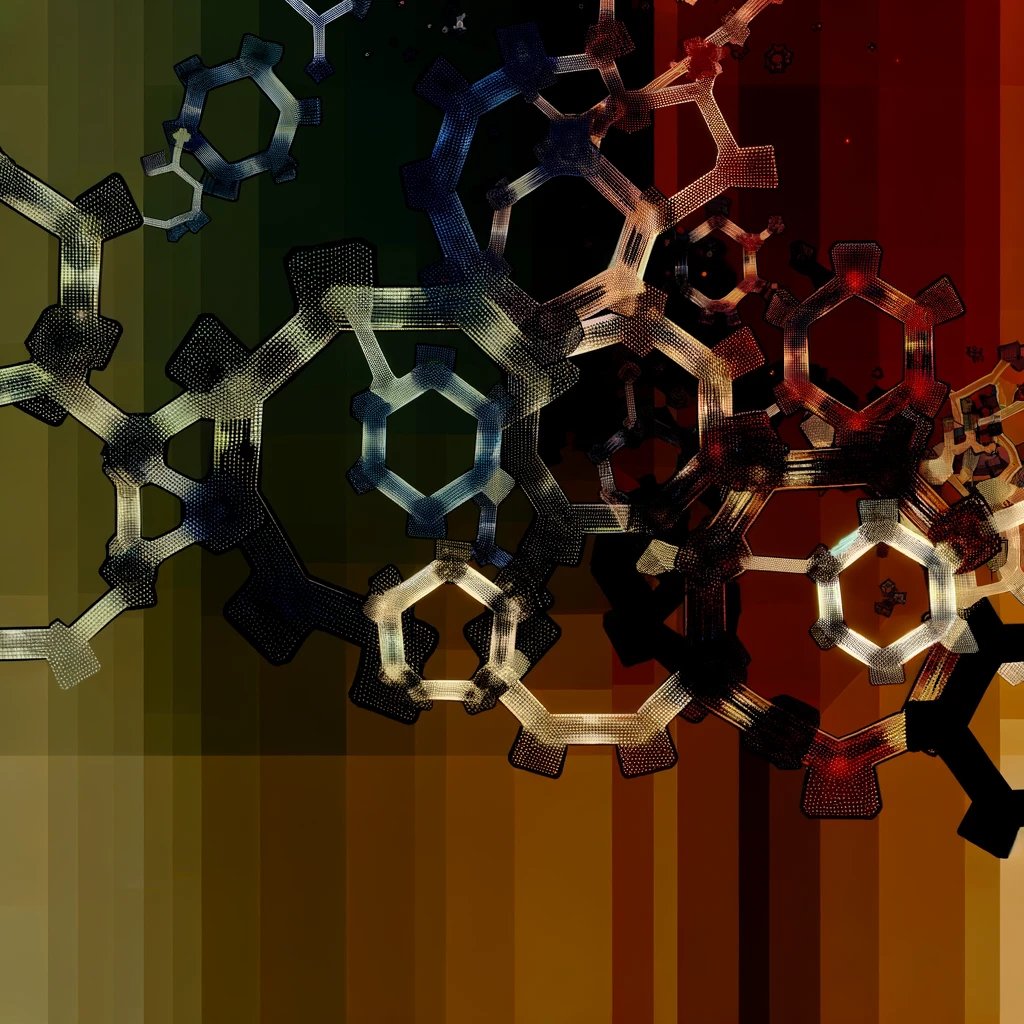

































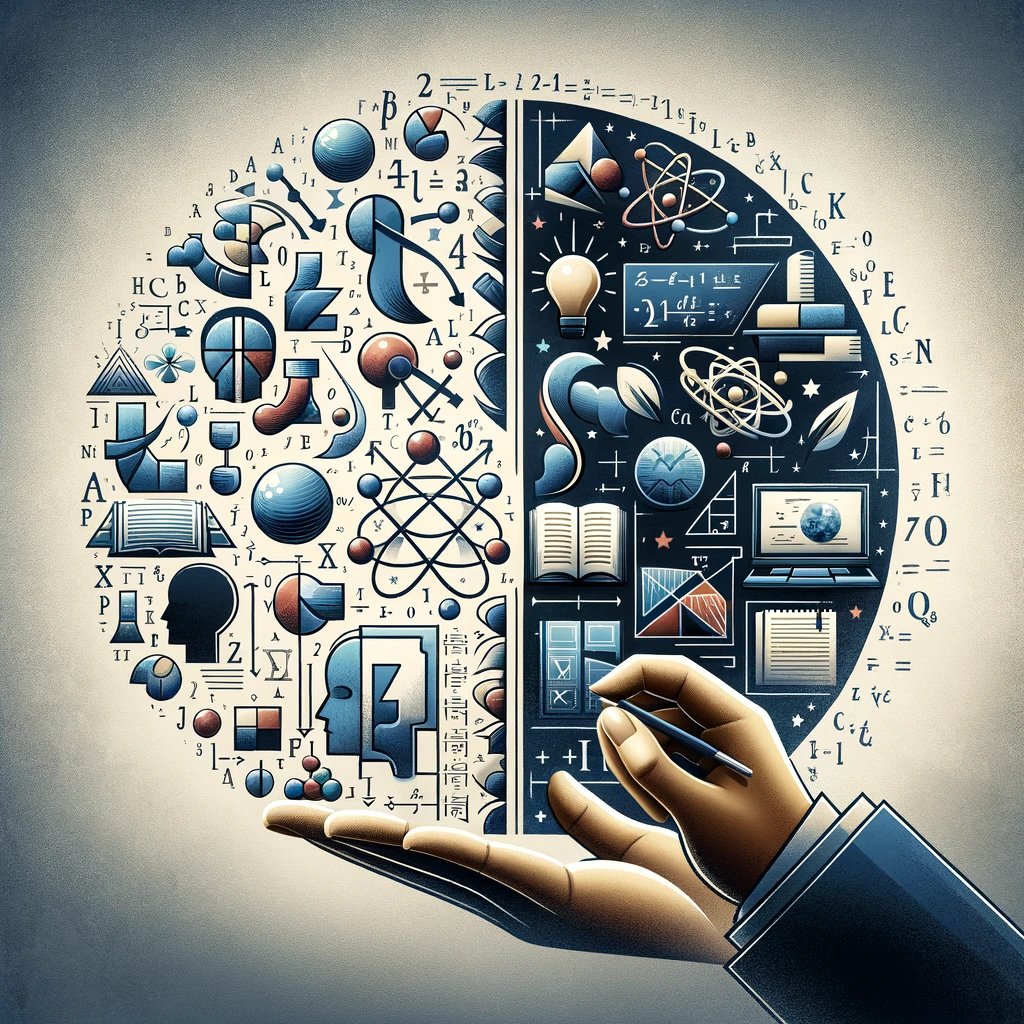

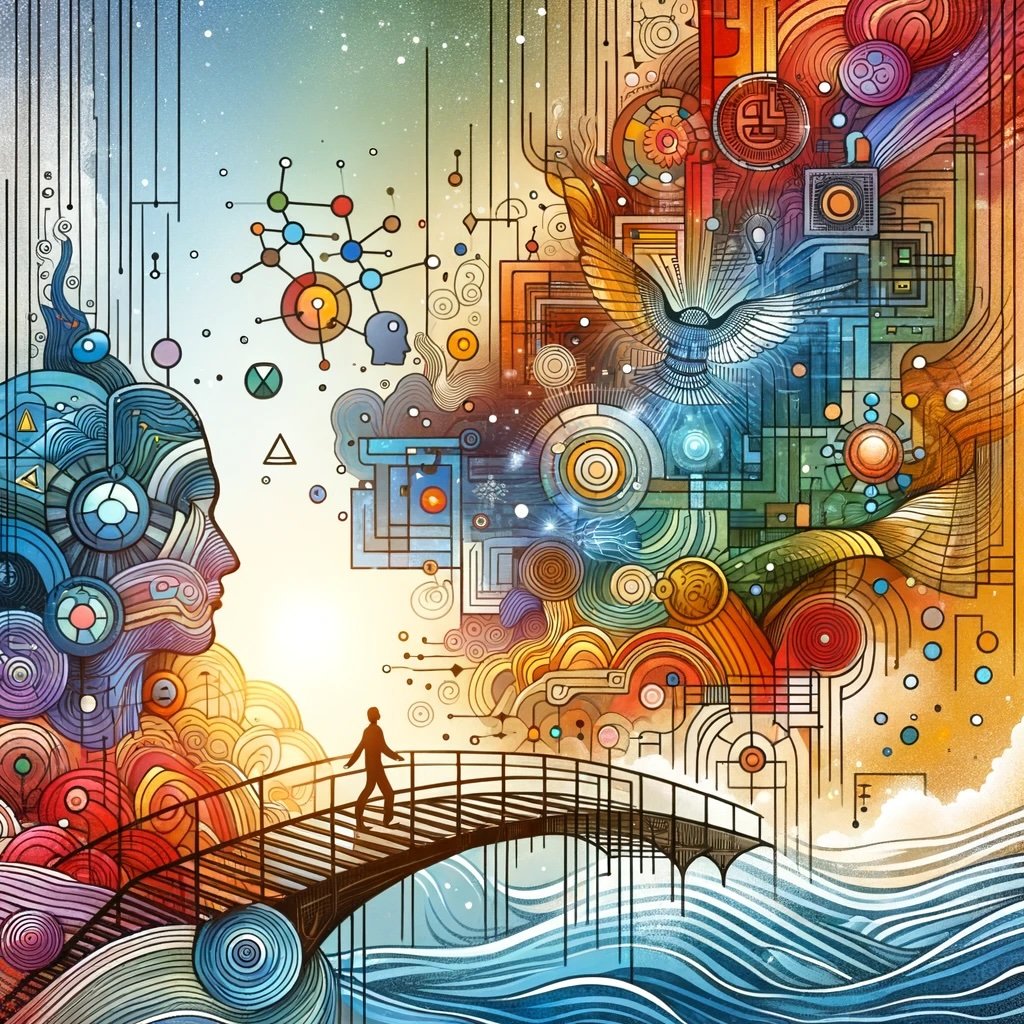














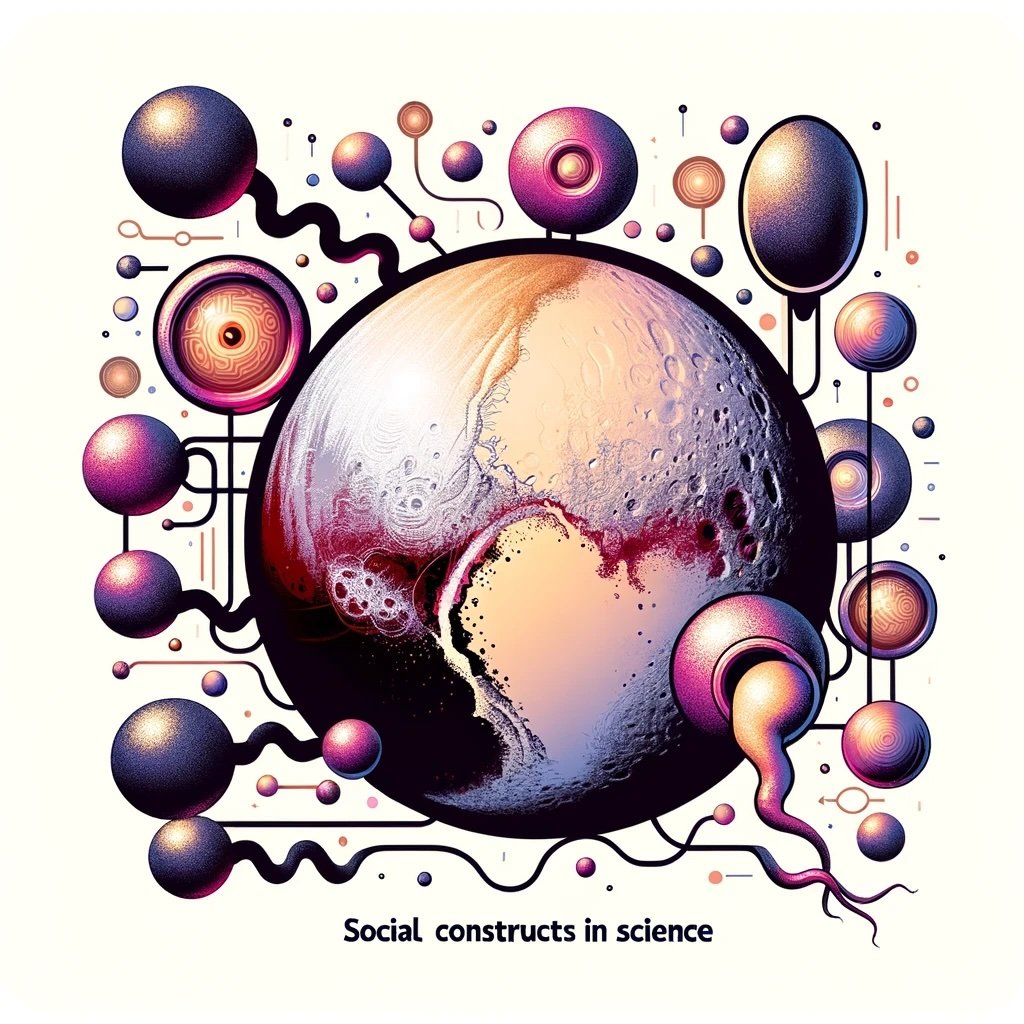











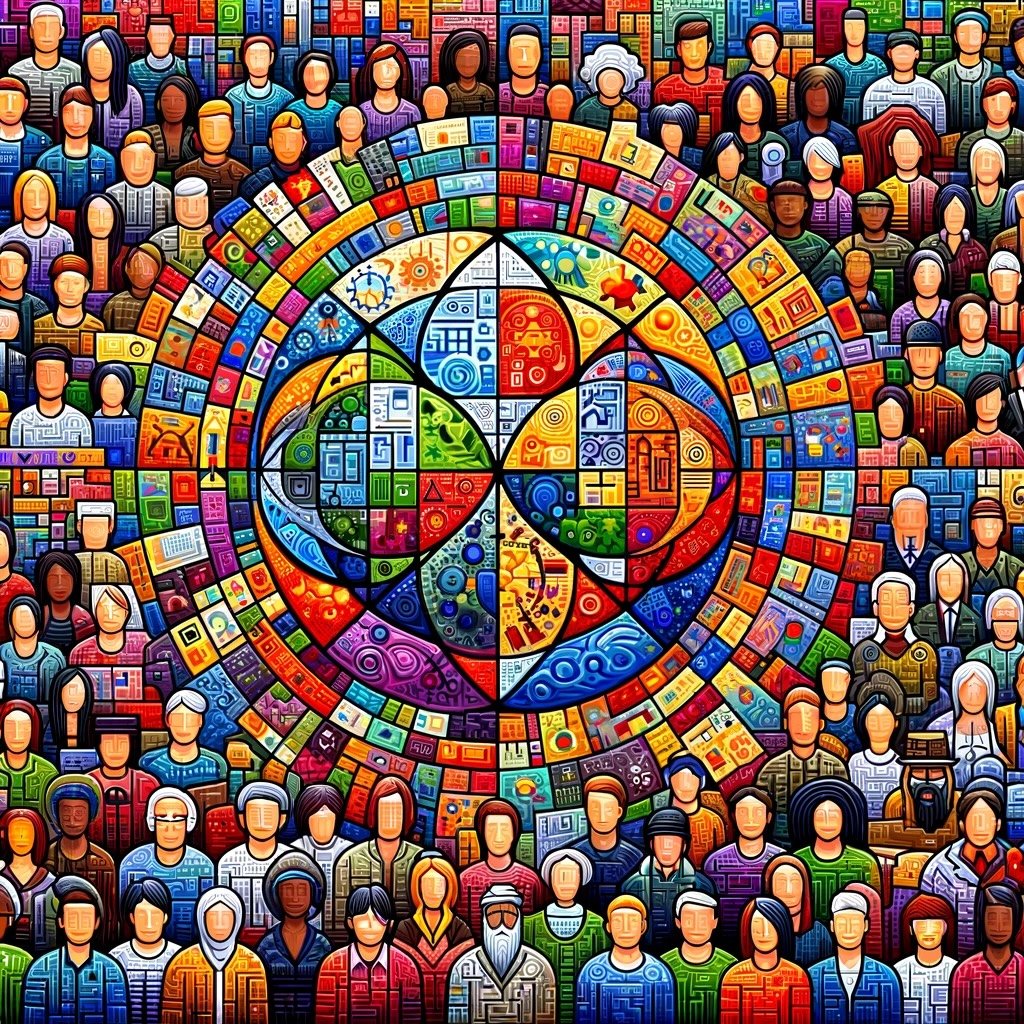

Examining the ways populism exploits incoherence and bad logic to make truth irrelevant, and the dangers this poses to political discourse.